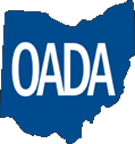In the last few months, the Ohio Legislature has been navigating an issue that has dramatically changed the landscape of collegiate athletics. Across the nation, at least 17 states have adopted legislation or Executive Orders that would allow collegiate athletes to earn compensation using their name, image, and/or likeness (“NIL”). Beginning on July 1, 2021, Ohio is among those states.
The legislature included NIL provisions in the Biannual Budget that was passed by both chambers and signed by the Governor in the early hours of July 01, 2021. The NIL provisions became effective immediately. Please see below for practical information regarding Ohio’s new NIL law.
What Activities May a Student-Athlete Engage in for NIL Purposes?
The NIL law allows collegiate students to develop their brand through marketing and promotional activities for compensation. Specifically, student athletes may be paid by third parties for endorsements, autograph signings, and personal appearances. A student-athlete may communicate directly with an interested third party or may use a school-sponsored platform designed to connect student-athletes and third parties.
However, a student-athlete cannot:
- enter into a NIL contract that requires the student-athlete to display a sponsor’s product, or otherwise advertise for a sponsor, during official team activities;
- display a sponsor’s product, or otherwise advertise for a sponsor any other time if the NIL contract conflicts with a provision of a contract to which the school is a party;
- Enter into a NIL contract for proscribed products or activities. Specifically, the law allows schools to prohibit student athletes from entering into NIL contracts if they are associated with any of the following:
- Controlled substances (including marijuana, medical marijuana, alcoholic, tobacco, vapor, electronic smoking devices, or other nicotine products);
- Any medical marijuana cultivator, processor, laboratory, or retail dispensary;
- Adult Entertainment;
- Casino or other Gambling Activities; or
- Any other category of companies, brands, or types of contracts that are similar to those described above that the institution communicates to the student before the student enrolls at the institution.; or
- Utilize a school’s trademarks or intellectual property such as logos without prior approval.
Once a contract is negotiated, student-athletes must submit the contract to their school for review before entering into the agreement to ensure that there is no conflict with any contract where the school is a party. If there is a conflict, then the school must notify the student of the conflict. The student-athlete cannot enter into the proposed NIL contract as it is currently written, but the student-athlete may negotiate a revision to the proposed contract to avoid the conflict.
Communication with Student Athletes
Businesses may reach out directly to student-athletes regarding NIL opportunities. Additionally, in an effort to assist athletes in navigating compliance and reporting requirement, several schools are beginning to implement guidelines or announcing new programs to assist the athletes and the public in better understanding these new obligations. Some examples include:
- The Ohio State University has launched THE Platform to Enhance Student-Athlete Brand Cultivation and published Student-Athlete Name, Image, Likeness Guidelines.
- University of Cincinnati has Launched IMPACT to Prepare Athletes for NIL Changes.
- University of Dayton has published an Open Letter to Flyer Fans Regarding Name-Image-Likeness
- University of Toledo Announces “Liftoff” Program for Student-Athletes
Many schools have teamed up with Opendorse to provide additional education and resources for student athletes as well as a market place for NIL activity. According to Opendorse’s website, it provides technology to the athlete endorsement industry. It serves the full lifecycle of supporting athletes: educating, assessing, planning, sharing, creating, measuring, tracking, disclosing, regulating, listing, browsing, booking, and more. To learn more about Opendorse’s tools for sports marketers, visit its dedicated sports marketers’ webpage.



